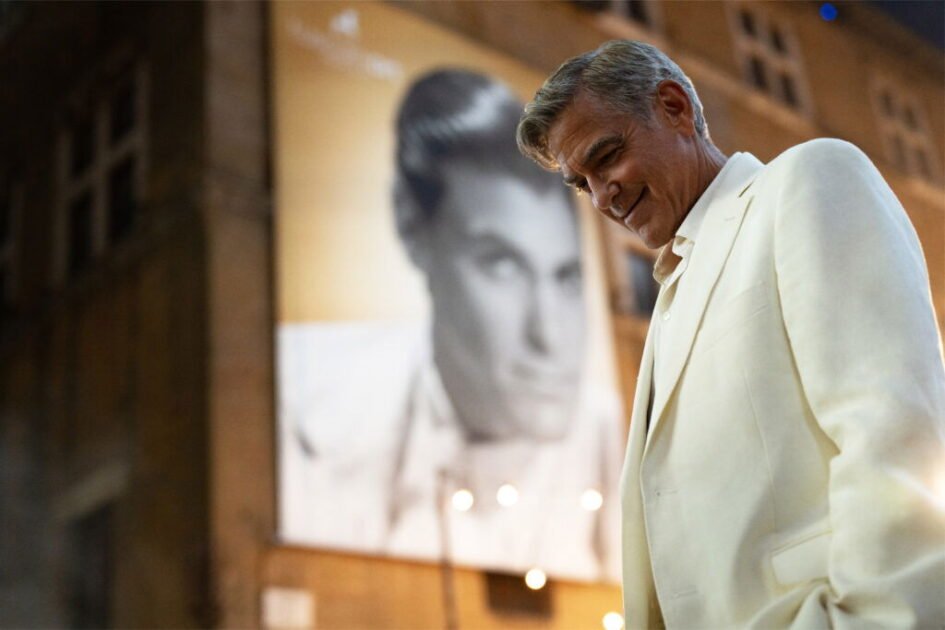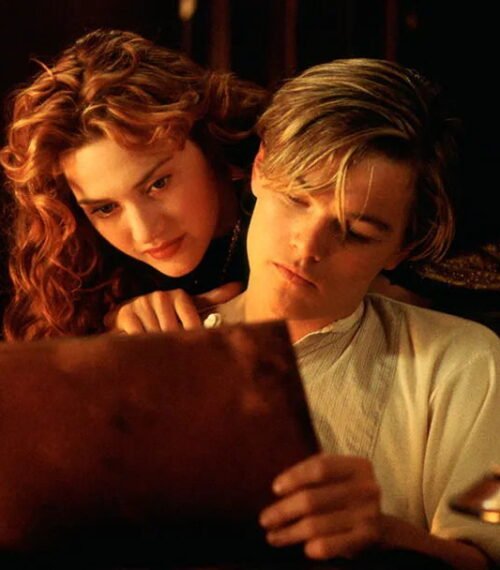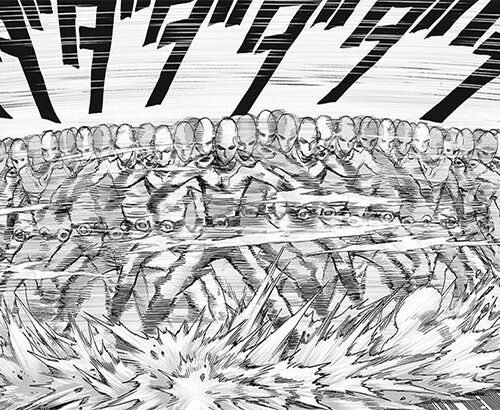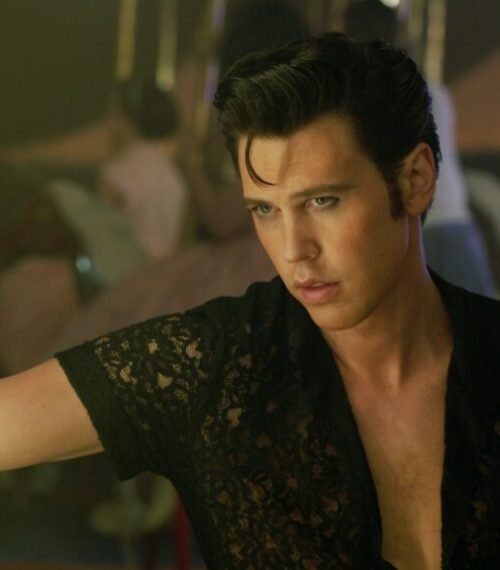Expectations were, frankly, quite high. When a filmmaker with the sensitivity and track record of Noah Baumbach is involved, there’s always a palpable anticipation. In my case, that was further fueled by a pretty interesting cast and, crucially, by incredibly positive comments from close friends whose film taste I fully share and trust. However, and perhaps most importantly, I walked into the cinema with a blank slate, knowing absolutely nothing about the story itself, focusing only on the premise that the mind and vision behind movies like Marriage Story would be orchestrating this new experience.
Jay Kelly, written by Baumbach in collaboration with Emily Mortimer (The Party) and directed by Baumbach himself, is a dense and moving drama about regret and life’s crossroads. The film focuses on Jay Kelly (George Clooney, Gravity), a successful actor who, at the peak of his career, confronts the true cost of his ambitions. Along the way, we also follow the lives of critical characters, such as his long-time agent and friend (Adam Sandler, Uncut Gems), whose destinies echo his own internal conflict.
Jay Kelly Review
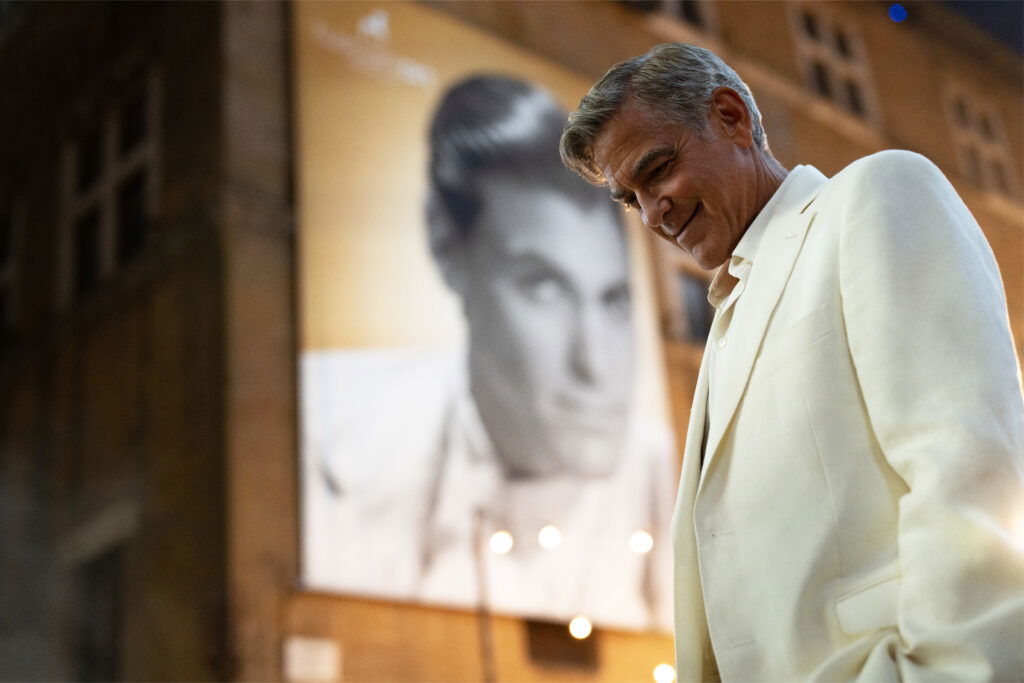

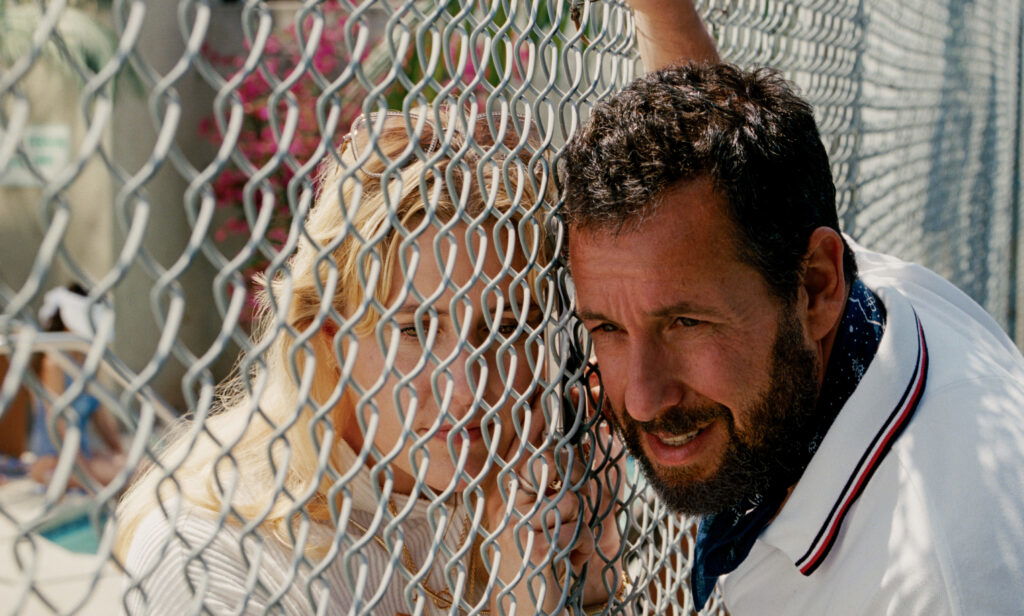

What Clooney delivers here is, without a doubt, his best performance since a time I can barely recall. I’ve never been a huge fan of his work, nor even a viewer who’d be instantly excited solely by his name on the poster, but the emotional complexity the actor reveals in Jay Kelly is astonishing. Clooney offers a deeply complex and irresistibly compelling portrayal, exposing the soul of a man who reached professional heights, but whose personal fulfillment has become a void.
I connected tremendously with the movie’s central theme: the overwhelming power of life-changing decisions and the tempting idea that there’s a parallel life, one we could have, or perhaps should have lived if only one choice had been different. Jay, as an actor, has a common phrase he repeats throughout the film: “Can I go again? Can I have another?” This question isn’t just about the scene at hand and asking for a new take; it’s the great metaphor for his existence. It’s the desire for a “reset” in his personal life.
However, the response he receives from others — that everything’s fine, there’s no need to change, what’s done is enough — contrasts painfully with his own feeling of failure and the sense that he could have done much better. He repeatedly succumbs to the path he chose in his youth, a path that was his dream, but which inevitably put him in a constant conflict between his work and his family life.
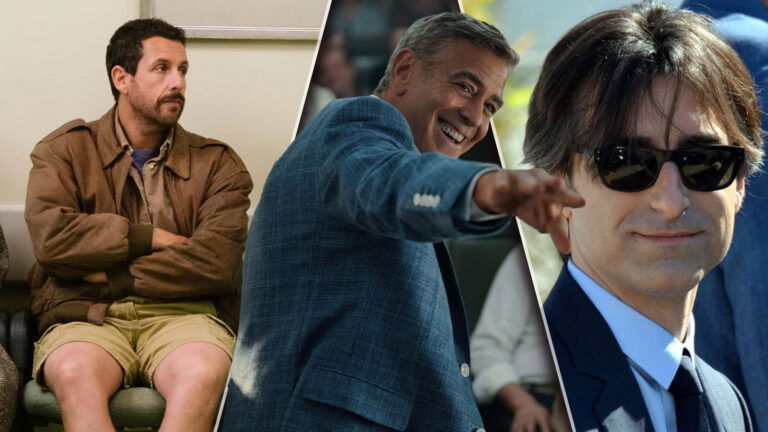
Before Jay Kelly, Adam Sandler And Noah Baumbach Gave Us the Most Underrated Gem Hiding on Netflix
Jay Kelly is also an incisive analysis of what one must sacrifice to reach the top of a profession. I believe this is a universal theme, manifesting in all areas, but with particular weight in the arts and sports. Total commitment, or “going all-in,” means saying ‘no’ to countless family and social events, pushing away friendships and relationships for which there simply isn’t time. Baumbach and Mortimer pose the question clearly and brutally: will money, fame, or success ever compensate for the cost of those lost human connections? The answer, in the melancholic and realistic tone of the filmmaker, suggests an unequivocal “no.”
This dilemma isn’t exclusive to the protagonist. The screenplay extends this reflection to secondary, but essential, characters whose arcs reflect the same existential crisis. The stories of Ron (Sandler), Liz (Laura Dern, Little Women), and even Jay’s daughters all share the same turning point: a life-changing moment based on a decision that completely altered their realities. It’s the manifestation of a path they chose, but which led them to a life that wasn’t the one they idealized, or one that didn’t bring them the happiness they thought they’d find. Jay Kelly thus creates a mosaic of lives that, despite having achieved forms of success or stability, carry the weight of what was left behind.

Another fascinating aspect of Baumbach’s thematic analysis is how the movie deals with the weight of memory. The ‘flashback’ sequences aren’t just expository devices, but rather windows into a past that Jay romanticizes and, paradoxically, never truly stopped living. He finds himself trapped in the nostalgia of those moments, unable to accept the totality of the present that he himself forged.
This persistence of the past in the present transforms his success into a burden, as he constantly measures the reality of his adult life against the pure, unfulfilled dream of his youth. This internal confrontation manifests in how the narrative handles time, suggesting that true regret isn’t what we did, but our refusal to forgive ourselves for what we can no longer undo.
The effectiveness of the writing and directing lies in the ability to make every conversation or confrontation feel intrinsically personal. Even phone calls, a device that could easily break immersion, are transformed into moments where the two people walk and talk together, as if they were physically present. This stylistic choice, combined with exceptional editing by Valerio Bonelli (The English Patient), ensures the audience never feels detached from the protagonist’s intimate conflict, turning every dialogue into an almost claustrophobic, incredibly efficient experience of proximity.
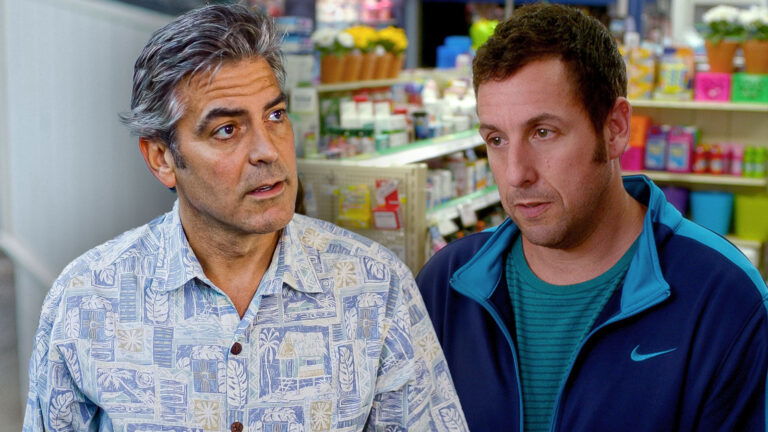
Jay Kelly: George Clooney Doesn’t Want You To Call Adam Sandler ‘Sand Man’ in Next Movie
Technically, Jay Kelly is impeccable. The pacing is perfect, flowing in such a way that its two-plus hours pass in an instant — even more remarkable considering I watched an earlier screening that was much shorter but felt longer. The cinematography by Linus Sandgren (La La Land) is uniquely beautiful, with long, uninterrupted takes that brilliantly serve the story — the opening shot, which moves fluidly between built sets, is a demonstration of pure mastery of the art. These long takes marry with Bonelli’s editing, allowing for seamless and impeccable transitions between the present and the memory sequences.
And it’s precisely these memory sequences that constitute a narrative and cinematic feat. They interconnect the past and present almost organically, often driven by the melancholic power of Nicholas Britell’s (Moonlight) score. The music, in fact, is one of the emotional pillars of Jay Kelly. The piano melodies in particular envelop and elevate the most heartfelt scenes, whether in the bittersweet tenderness between Jay and his daughter Jessica, or in his flashbacks. It’s one of the several reasons why I found myself tearing up by the end…
Is Jay Kelly worth watching?
Jay Kelly is a dense and unforgettable drama from Noah Baumbach, where George Clooney’s inspired performance reaches a peak of vulnerability, giving life to a man trapped between professional success and personal emptiness. It’s a thematically rich story about the tyranny of memory and the high cost of ambition, questioning whether success compensates for lost bonds. With directing, editing, cinematography, and score that transform dialogue into pure intimacy and organically link the past and present, the film is technically and emotionally superb, rejecting the convenient ending in favor of life’s bittersweet truth. The only way forward is ahead, learning to love the story that, by choice, became our own.
Jay Kelly releases in selected theaters on November 14 and on Netflix on December 5.

